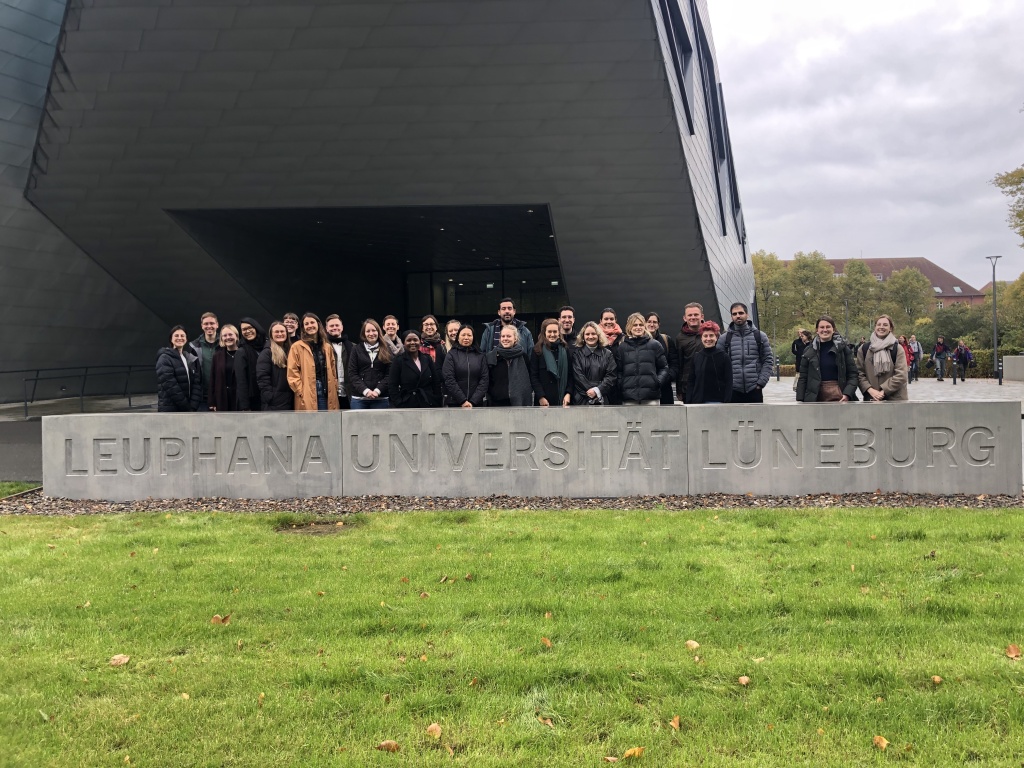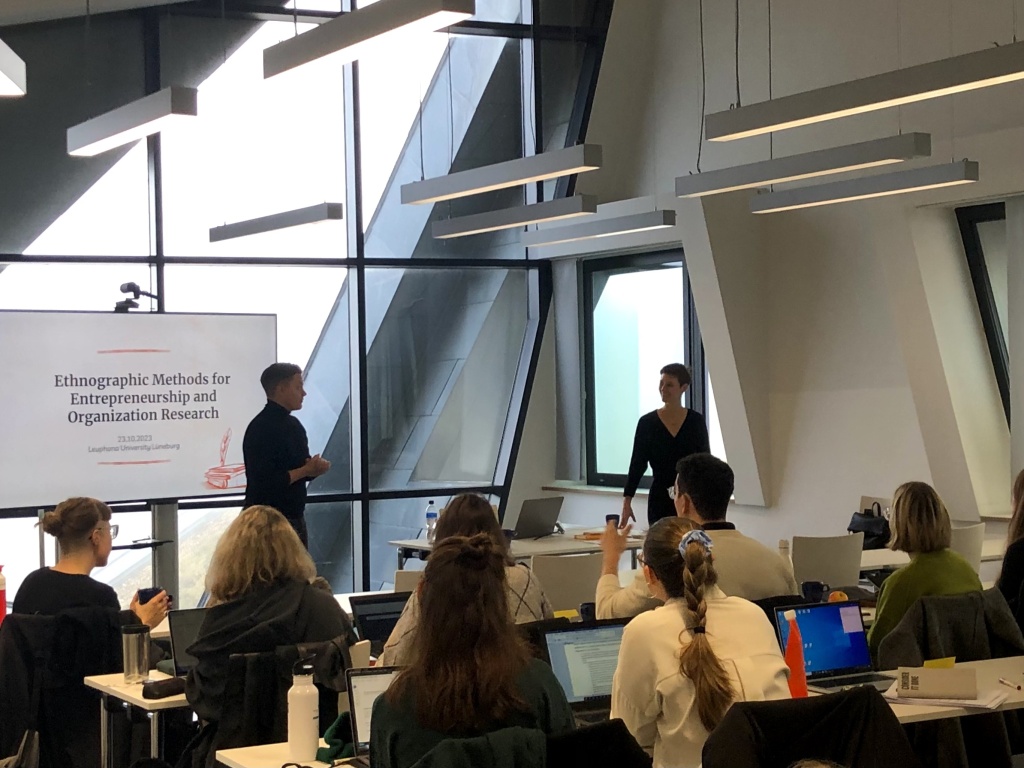With the generous help of the ECSB, the workshop “Ethnographic Methods for Entrepreneurship and Organization Research” took place on October 23rd -24th 2023. The workshop was given by Prof. Boukje Cnossen (Leuphana University) and Prof. Ari Kuismin (University of Jyväskylä) and organized and initiated by Lena Rieck (TU Dresden) and Alexa Böckel (Leuphana University Lüneburg). In the central building at the Leuphana University of Lüneburg campus, more than 25 junior researchers from all over Europe met to learn more about ethnographic methods.

Ethnography is a specific approach to conducting qualitative research in the social sciences. Ethnography is about being in the field and experiencing the phenomenon in situ (getting the emic perspective). Thus, the approach is especially suitable for uncovering complex social phenomena and revealing deep insights from an insider perspective. Whereas neighboring fields, such as organization and management studies have relied on ethnographic research for a while, entrepreneurship and SME research just started to do so. Therefore, the workshop aimed at integrating ethnography into the toolkit of organization and entrepreneurship scholars and support especially junior researchers in the oftentimes challenging research process.


The two workshop lecturers Prof. Boukje Cnossen (Leuphana University) and Prof. Ari Kuismin (University of Jyväskylä) put together a program consisting of different inputs, media, and exercises to learn about and ‘do’ ethnography.
The first day was meant to lay out the foundations of the methodology and discuss specific challenges in the research design and execution. Discussing topics like research access, ethical and legal issues, and data analysis enabled all participants to get a very hands-on guide on how to set up an ethnographic project. The day ended with the opportunity to get feedback on the participants’ own projects and a joint dinner in Lueneburg’s old town in the evening.
The second day was full of practical tips and exercises. The participants practiced note-taking and fieldnote-writing in a number of exercises. Moreover, they received helpful advice on what it means to publish ethnographic research, writing genres, and ways to present the rich data obtained in the field.
A special highlight on both days was the digital support by various international experts in ethnographic research. Prof. Cnossen and Prof. Kuismin interviewed Boris Brummans, Katie Stephenson, Alaric Bourgoin, Chahrazad Abdallah, and Nicolas Bencherki to collect further advice and tips from experienced scholars.
Throughout the whole workshop, the lecturers and participants created an engaging atmosphere that was full of discussion and mutual support. We hope to keep the conversation in this wonderful community alive!
Authors: Alexa Böckel, Leuphana University Lüneburg & Lena Rieck, TU Dresden

You must be logged in to post a comment.